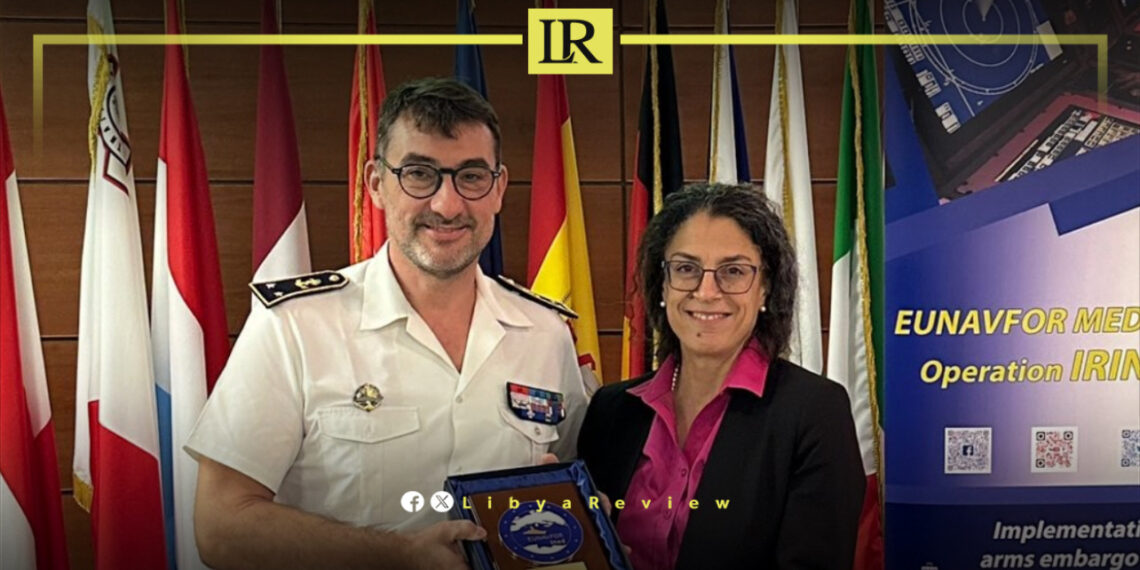The Acting Head of the United Nations Support Mission in Libya (UNSMIL), Stephanie Khoury, visited the headquarters of the European Union’s Operation IRINI in Rome this week to discuss the importance of enforcing the UN-mandated arms embargo on Libya. The arms embargo is seen as a crucial measure to curb the influx of weapons into the war-torn country and to foster stability after years of conflict.
Khoury met with Rear Admiral Guillaume Fontarinsky, Deputy Commander of Operation IRINI, who provided her with an overview of the operation’s mission and the ongoing challenges it faces in effectively monitoring and preventing arms smuggling into Libya. Operation IRINI, launched by the EU in 2020, has been a key part of the international effort to monitor and intercept illegal weapons entering Libya by air and sea.
During her visit, Khoury underscored the importance of strict adherence to the arms embargo, highlighting its role in stabilizing Libya, which remains divided between rival factions. She stressed that halting the flow of weapons to warring groups is essential to peacebuilding efforts and the long-term recovery of the nation.
Earlier, Khoury also met with Pasquale Ferrara, Director-General for Political and Security Affairs at the Italian Ministry of Foreign Affairs, where they discussed other critical issues facing Libya, particularly the ongoing crisis surrounding the Central Bank of Libya. The financial crisis has compounded political divisions and continues to impede efforts to form a unified government.
Since the fall of Muammar Gaddafi in 2011, Libya has been embroiled in civil conflict, with various factions vying for control of the country. The UN-imposed arms embargo, which has been in place for years, is meant to prevent external forces from exacerbating the conflict by supplying weapons to these factions. However, violations of the embargo have been widespread, with arms still flowing into Libya, often via sea routes in the Mediterranean.
Operation IRINI has been at the forefront of efforts to curb these violations. It monitors sea traffic off the Libyan coast, intercepting suspicious vessels and ensuring that arms do not reach conflict zones. While IRINI has had some success, the operation faces significant challenges, including political pushback, limited resources, and accusations of bias from Libyan factions.
The continued inflow of weapons to Libya has not only fueled the conflict but also contributed to regional instability, making the enforcement of the arms embargo a top priority for both the UN and the EU.
In addition to the arms embargo, Khoury and Italian officials also addressed the ongoing crisis surrounding the Central Bank of Libya. The bank has become a focal point of political conflict, with rival governments in the east and west both seeking control of the country’s finances. This deadlock has worsened Libya’s economic problems and delayed critical reforms needed to stabilize the economy.
Libya’s situation remains a central concern for the international community, especially for neighboring countries like Italy, which has a vested interest in preventing further destabilization in North Africa. Italy has played an active role in supporting the enforcement of the arms embargo and has been a key partner in the EU’s Operation IRINI.


